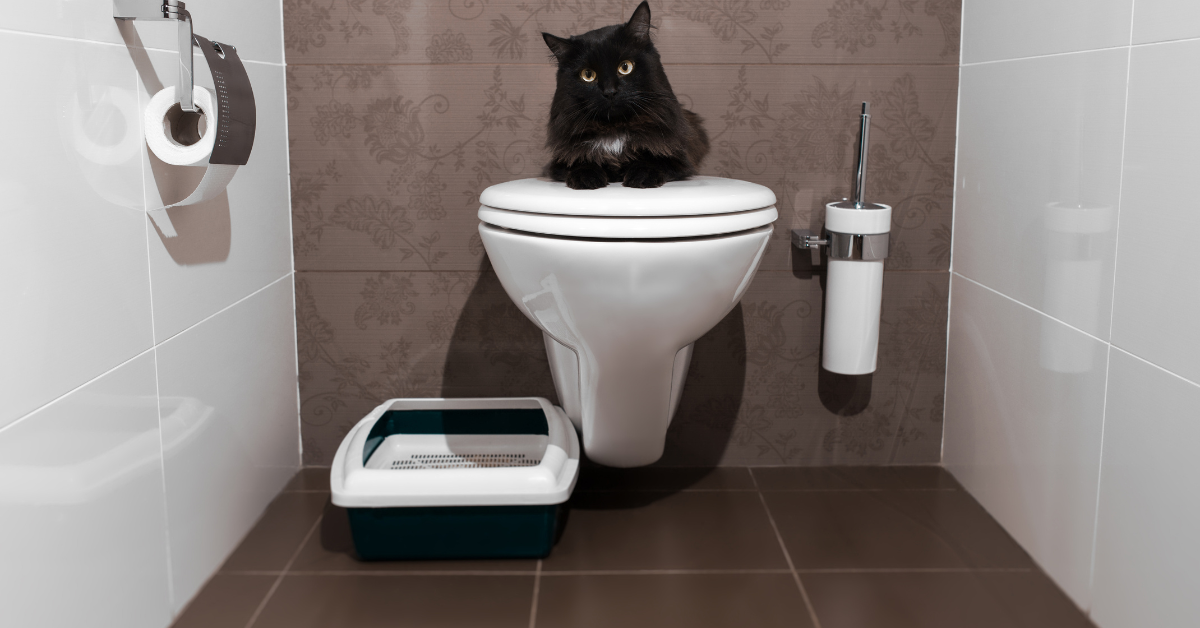Reasons You Should Avoid Flush Cat Poop Down Your Toilet - Crucial Facts
Reasons You Should Avoid Flush Cat Poop Down Your Toilet - Crucial Facts
Blog Article
They are making several good points about How to Dispose of Cat Poop and Litter Without Plastic Bags overall in this article followed below.

Intro
As cat owners, it's vital to bear in mind how we get rid of our feline pals' waste. While it may seem hassle-free to flush cat poop down the toilet, this practice can have harmful effects for both the atmosphere and human health and wellness.
Ecological Impact
Flushing feline poop presents hazardous virus and parasites into the water system, posing a significant threat to water environments. These pollutants can negatively influence aquatic life and compromise water quality.
Wellness Risks
Along with environmental problems, flushing feline waste can likewise present health and wellness risks to humans. Pet cat feces might contain Toxoplasma gondii, a parasite that can create toxoplasmosis-- a potentially extreme illness, particularly for expectant ladies and people with weakened immune systems.
Alternatives to Flushing
Thankfully, there are safer and much more accountable ways to get rid of pet cat poop. Think about the adhering to options:
1. Scoop and Dispose in Trash
One of the most usual approach of dealing with cat poop is to scoop it into a naturally degradable bag and toss it in the garbage. Make sure to make use of a committed litter scoop and dispose of the waste without delay.
2. Usage Biodegradable Litter
Select biodegradable pet cat litter made from products such as corn or wheat. These trashes are eco-friendly and can be securely dealt with in the trash.
3. Bury in the Yard
If you have a yard, consider burying cat waste in a marked area away from vegetable yards and water sources. Make sure to dig deep enough to prevent contamination of groundwater.
4. Install a Pet Waste Disposal System
Invest in an animal waste disposal system especially made for feline waste. These systems use enzymes to break down the waste, decreasing odor and ecological impact.
Conclusion
Liable pet possession extends past giving food and sanctuary-- it also entails appropriate waste monitoring. By refraining from purging feline poop down the bathroom and opting for alternative disposal techniques, we can minimize our ecological impact and shield human health and wellness.
Why You Should NEVER Flush Cat Poop (and/or Litter) Down Your Toilet
The Problem with Litter
The main function of litter is to solidify and adhere to your cat’s waste. While this makes litter excellent for collecting cat poop and urine, it’s also the exact property that makes it a nightmare when flushed down the toilet.
Cat litter can and will clog pipes. There is non-clumping litter, but it’s still quite heavy and can build up in pipes. This is true even of supposed “flushable litter.”
The problems only compound when the litter is already clumped into cat waste. Toilet paper is among the more flushable things, and even too much of that will clog a toilet.
The Problem with Cat Poop
Sewers and septic systems are designed with human waste in mind. The microbes that help break down human waste don’t work on cat waste. Additionally, cat poop plays host to the parasite Toxoplasma gondii.
When flushed, this parasite can enter the environment in places it was never meant to, posing a risk to pregnant women, their unborn children, and other people with compromised immune systems. While it might not seem possible, flushing cat poop can indeed introduce this parasite to the public water supply.
These reasons are why, even if you’ve trained your cat to go on the toilet and flush, which is possible, it’s still not a good idea. Also, pregnant women and the immunocompromised shouldn’t change litter, either.
How to Handle Litter
The best way to handle litter is to simply put it in a plastic bag and place it in the trash. Avoiding environmental risks and possible plumbing damage is worth the extra effort.
You can also invest in devices that seal away your cat’s waste in a separate compartment, so you don’t have to change the litter nearly as often. They’re also safer for pet owners because they limit the possibility of Toxoplasma gondii exposure.
Disposing of litter the old-fashioned way will ensure you won’t have to worry about any issues that flushing the waste can potentially cause.
Take Care of Clogged Pipes with Stephens Plumbing, Heating & Air Conditioning
The reasons you should never flush cat poop down your toilet are numerous, but sometimes the inevitable happens despite your best efforts.
Stephens Plumbing, Heating & Air Conditioning is ready to help if you’re experiencing litter-blocked plumbing. Whether you need us in an emergency or want to schedule regular maintenance, we’re here for you.
https://www.stephensplumbing.net/bathroom-plumbing/never-flush-cat-poop-down-your-toilet/

We had been made aware of that write-up on Can You Flush Cat Poo or Litter Down the Toilet? through an acquaintance on our other website. If you enjoyed reading our blog entry kindly remember to share it. Thank you for taking the time to read it.
Click Here To Read More Report this page